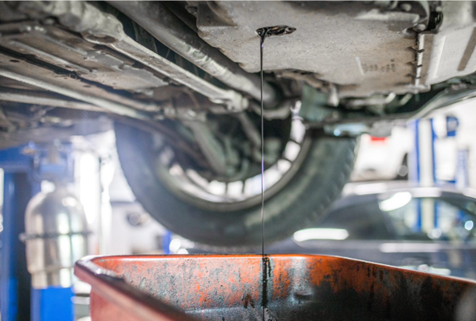
Your Hyundai’s engine is a complex piece of engineering. It consists of numerous interconnected systems. A problem with one part or component can have implications for the engine itself. If you experience engine problems, your Hyundai dealer is here to help you. We can any possible problem in your engine. These are a few examples.
3 Engine Problems That You Need To Fix at Your Hyundai Dealer
Damaged Sensors
Sensors have been a part of our cars since the 1980s, and they’ve revolutionized the automobile industry. These sensors monitor important components and help to diagnose potential problems. All of the sensors in your car are connected to your Hyundai’s computer, which receives and interprets the information. Your car’s computer makes numerous decisions, but these decisions depend on the right information from the sensors.
Damaged sensors can cause serious problems. A failed oxygen sensor in the exhaust, for example, can lead to higher gas usage, damaged spark plugs, and other problems. The oxygen sensors monitor the level of oxygen in the engine. This information is used to vary the timing and air-to-fuel ratio. If the information from the sensor is wrong, your engine will operate inefficiently.
Clogged Radiator
When your engine temperature rises, coolant is released to absorb heat. The coolant carries this heat to the radiator, where it’s exchanged for cooler outside air. The coolant, however, can absorb other things besides heat. Metal fragments, rust particles, and other debris in the engine are also absorbed and taken to the radiator.
Once the coolant has cooled in the radiator it is drawn back out and recirculated. The debris in the fluid, however, is left behind. Over time this debris can clog the radiator, the hoses, and the radiator tubes. If your radiator is blocked, your engine temperature will rise quickly. Our technicians can clean the cooling system and repair or replace the radiator.
Starting Problems
When you start your car, the battery sends an electrical charge to the starter motor. This charge provides the power to crank your engine, and you should be rewarded with the purr of your Hyundai’s engine. If this doesn’t happen, the problem could be caused by the starter motor, the battery, or the alternator. Our technicians will need to find the cause of the problem.
The battery provides the power, but it also depends on the alternator to recharge it. If your alternator is failing, it won’t provide enough power for your battery. A worn battery may not retain enough power to start your engine. Finally, a failed solenoid in the starter motor can cause starting problems.
If you experience these or any other problems with your engine, call our service department ASAP at Crain Hyundai of Bentonville.





